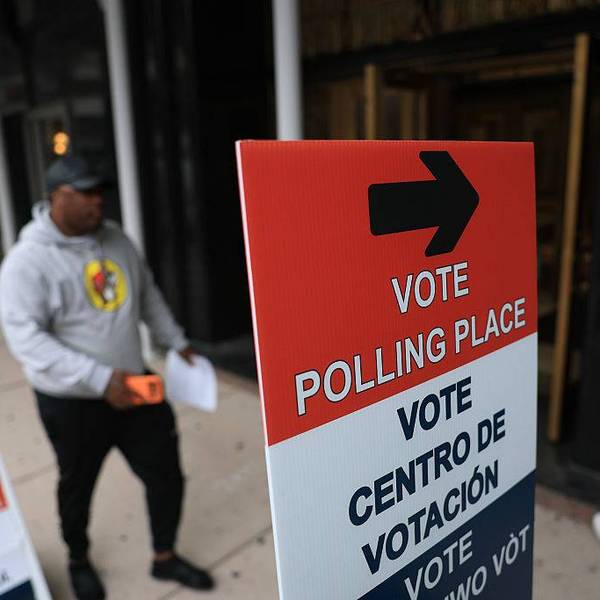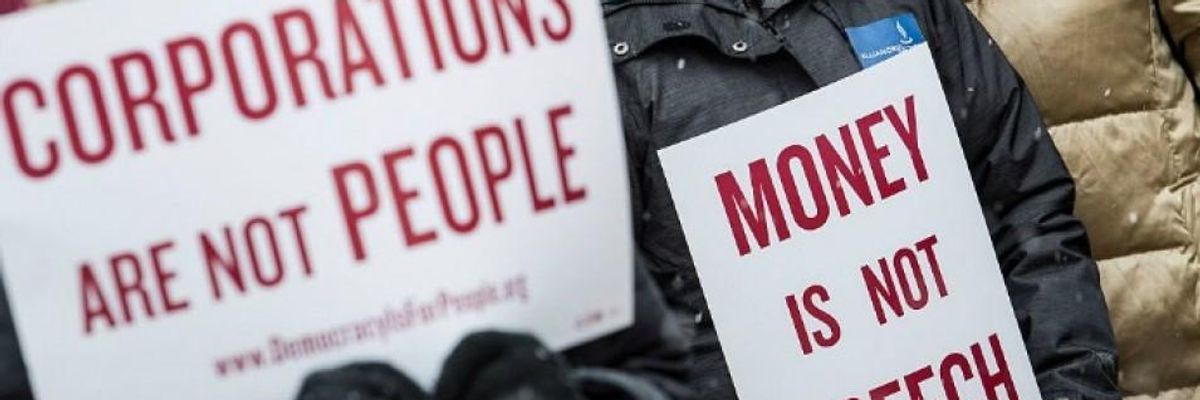In a win for increased transparency and those demanding an end to the so-called "dark money" eating away at U.S. democracy, the Supreme Court on Tuesday lifted a previous stay on a lower court ruling by rejecting the argument by right-wing advocacy groups who said they should not have to reveal the identity of big-dollar donors who fund their issue-based campaign ads.
Crucially, the ruling means that groups that in the past have been able to hide the source of their funding before, during, and after campaigns will have now have to make that information available before voters go to the polls--in this case, that means before the upcoming mid-term elections. Effective immediately, any group or individual making more than $250 in express advocacy ads -- ads that tell viewers who to vote for or against -- must now disclose the identities of all contributors who gave more than $200 in a year.
As the Huffington Post reports:
The decision came about after Citizens for Responsibility and Ethics in Washington, a liberal watchdog group, fought for the past six years to get the Federal Election Commission to enforce campaign finance laws against Crossroads GPS, a conservative nonprofit group founded by Karl Rove, a senior adviser to George W. Bush when he was president. CREW finally won its battle on Tuesday.
As of Sept. 18, any group that runs an independent expenditure -- election ads that expressly call for the election or defeat of a candidate -- in excess of $250 will have to disclose all political donors above $200.
Norm Eisen, the chairperson of CREW, celebrated the decision on Twitter: "We are about to drive a lot of dark money donors into the light--it's gonna look like the climax of a Harry Potter movie where the creatures shrivel in the sun."
Writing for the Center for Public Integrity, Dave Levinthal and Sarah Kleiner report that "secret money in politics will soon be a lot less secret."
And while Levinthal and Kleiner quoted Federal Election Commission Vice Chairwoman Ellen Weintraub, who said it won't be surprising to see some groups "come up with clever ways of getting around the rules," champions of disclosure said the ruling is a major crack in the armor of the forces of those using shadowing groups and their vast fortunes to undermine democracy.
"This is a great day for transparency and democracy," said Noah Bookbinder, CREW's executive director. "Three courts, including the Supreme Court, have now rejected Crossroads' arguments for a stay, meaning we're about to know a lot more about who is funding our elections."




